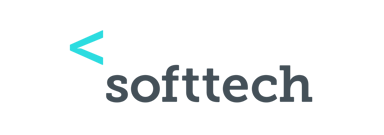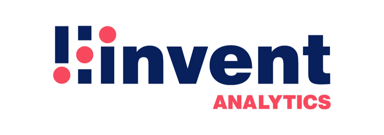
10 Best Pre-Employment Testing Software
Finding the right hire isn’t as simple as scanning a resume anymore. In today’s job market, where great candidates get snapped up fast, interviews alone just don’t cut it. You need more than a good first impression, you need proof.
That’s where pre-employment testing really helps. It lets you see what people can really do, not just what they say on paper. The right test makes hiring quicker and takes the guesswork out.
Of course, with so many platforms out there, it’s easy to get stuck trying to figure out which one fits your needs. Let’s make that easier. ✨
Why Pre‑Employment Testing Is Important
Nobody wants to make a bad hire. It’s not just about the money: it’s the time you lose, the team dynamics that get thrown off, and sometimes even the hit your culture takes. That’s why so many hiring teams are turning to testing tools that give them a clearer picture of who’s actually a good fit. 👌
A good assessment can tell you more in half an hour than an interview sometimes can in a full hour. And the best part? It gives everyone a fair shot.
It doesn’t matter where someone studied or what jobs they’ve had. What really matters is what they can do. That makes a huge difference especially if you’re hiring many people or want to be fair.
Also, it makes the whole hiring process quicker. Instead of going back and forth over resumes or guessing how good someone is, you get real results that actually match the job. That kind of clear info makes it way easier to decide who to move forward.
Key Considerations Before You Pick a Testing Software
Not every pre-employment test is going to work for every company. 📌
What a fast-moving startup needs is probably miles apart from what makes sense for a big corporate team. Before jumping into demos or free trials, take a step back and ask: what do we really need this tool to do?
If you're hiring engineers or data team, you'll want something that lets them show their skills through real coding tasks or hands-on challenges. But if you're hiring for roles that depend more on people skills like support, sales, or customer service: a tool that looks at communication, judgment, or personality might be a better fit.
Also think about who’s actually going to be using it. Are your recruiters the ones sending out tests? Will hiring managers want to dig into the results? If it’s too complicated, it’ll just slow everyone down.
And don’t forget about your ATS. If the testing tool connects with it, that saves you from copying and pasting all over the place and keeps everything moving smoothly.
Think about what the test feels like for the candidate. If it’s confusing, boring, or just way too long, people won’t finish it. But if it feels clear, relevant, and easy to take especially on a phone: you’ll see way better completion rates. And that means better data and faster hires.
10 Best Pre-Employment Testing Software

There are tons of tools out there, but these ten are dependable, easy to use, and give HR teams useful insights. 👇
1. Canditech
Canditech is known for its immersive and flexible approach to assessments. Instead of traditional multiple-choice tests, it lets you create simulations that reflect the actual job.
You’re not just reading resumes: you’re watching candidates write emails, explain ideas, or break down a spreadsheet. It’s a simple way to see how they think and communicate, which matters a lot in roles like marketing or support.
2. eSkill
eSkill offers one of the most comprehensive test libraries out there. You can mix and match different assessments like cognitive aptitude, computer literacy, or even Microsoft Excel proficiency to build something that fits the exact role you're hiring for.
If you’re hiring a lot of people, this one’s built to handle that kind of volume. And since candidates can send video responses, you get a better feel for who they actually are.
3. Willo
Willo sits at the intersection of video interviewing and skills testing. It’s great for companies hiring remotely or globally, since it allows candidates to complete assessments anytime, from anywhere.
Willo’s interface is simple and clean. It also gives candidates a stress-free space to present themselves beyond their resume. For companies aiming to make the process more human without sacrificing speed, it’s a strong contender.
4. PrevueHR
PrevueHR leans heavily into science and predictive analytics. Its assessments are designed to uncover not just whether someone can do the job, but how well they’re likely to do it over time.
You’ll get data on cognitive ability, personality traits, and fit with team culture. For companies focused on long-term success and reducing turnover, that kind of predictive insight can be incredibly valuable.
5. Vervoe
Vervoe wants to make hiring all about merit. It lets you test candidates through real-world tasks like writing, editing, coding, or even sales calls: and then uses AI to automatically score those responses. That’s a major time-saver if you're dealing with hundreds of applications.
It’s also great for reducing unconscious bias, since you're evaluating what candidates do, not how well they “interview.”
6. iMocha
If you're hiring for tech-heavy roles, iMocha is a serious contender. It covers a huge range of skills from front-end coding to cybersecurity, and even has proctoring built in to keep things fair.
But it’s not just for hiring new people. If you want to help your current team learn new skills or move up, iMocha works great for that too.
7. Talview
Talview’s made for teams that are juggling a lot. You can run skills tests, check for soft skills, and do interviews, all in one place. If you’re hiring at scale, it saves your team a ton of stress.
Talview puts a real focus on fairness and compliance. So if you’re hiring in a regulated space or just want to make sure your process is consistent and fair, it’s a good pick.
8. Wild Noodle
Wild Noodle takes a very different approach to evaluating technical skills. Instead of standard coding problems, it presents algorithmic puzzles designed to measure logic and problem-solving ability.
It’s a unique, niche tool: but for companies hiring junior developers or early-career engineers, it can help spot talent that more traditional platforms might overlook.
9. Criteria
Criteria’s big strength is its science-backed approach to hiring. One of its most popular tools, the CCAT (Cognitive Aptitude Test), helps measure how quickly someone picks things up, how they solve problems, and how they think under pressure: which can tell you a lot, especially early in the process.
Criteria also offers personality tests and skills assessments, so if you’re trying to get a well-rounded view of a candidate: not just what they know, but how they think and work, it’s a solid option.
10. Qualified
Qualified is a go-to for engineering teams that care deeply about code quality. It replicates real coding environments, allowing candidates to solve problems in their preferred language.
You can even review how they wrote their code in real time, thanks to playback features. It’s a favorite among dev teams who want to go beyond whiteboard challenges and see how people actually work.
How to Implement Pre-Employment Testing Effectively
Choosing a tool is just the beginning. The real value comes from how you use it. That starts with aligning your hiring team around what you’re testing for. 📌
Are you trying to reduce bias? Improve quality of hire? Speed up the shortlisting process? Be clear about your goals from the start.
Then think carefully about where in your hiring process to place the assessment. Too early, you might scare off great people who just aren’t there yet. But if you wait too long, you could waste time talking to someone who was never really a match in the first place. A good rule of thumb is to test candidates after an initial screen but before deeper interviews.
Be real with people and tell them why there’s a test. Also, explain how it fits into the hiring process. And if you give some feedback after, it will show that you respect their time and effort.
Make time to test the test. Try it yourself. Have your team take it. Watch where people get stuck or confused. The better your experience with the platform, the better your candidates’ experience will be too.
Conclusion
Hiring isn’t what it used to be and that’s a good thing. With so much riding on every new hire, relying on gut instinct or a polished interview just doesn’t cut it anymore.
Pre-employment testing gives you something more solid to work with and makes the whole process clearer. It helps you find people who really stand out, and shows you if someone’s a good fit on the job.
Whether you’re growing your team quickly or just trying to make hiring smoother at a bigger company, having the right testing tool really helps. It saves time. It reduces bias. And it puts your hiring decisions on a foundation of real-world ability. ⭐️
Start Hiring With Our Free ATS!
HR teams from AXA, Mondelez, Mercedes… they love us! (no credit card required 🙂↔️)
Get a demo
- Quickly find top candidates with smart application management
- Improve team collaboration using built-in communication and workflows
- Offer a smooth candidate experience to strengthen your employer brand
- Count on 24/7 support for a hassle-free hiring process
- Quickly find top candidates with smart application management
- Improve team collaboration using built-in communication and workflows
- Offer a smooth candidate experience to strengthen your employer brand
- Count on 24/7 support for a hassle-free hiring process
"We truly felt the speed difference. Everything was smoother, and candidate feedback was much more positive. It made our jobs easier."

Trusted by 100+ teams
Get Informed,F.A.Q.
Revolutionize your hiring process with our transformative Applicant Tracking System (ATS.)
Suggested Blog Posts

5+ Recruitment Statistics You Need to Know in 2026

30+ Statistics Highlighting the Importance of Workplace Diversity and Inclusion
















